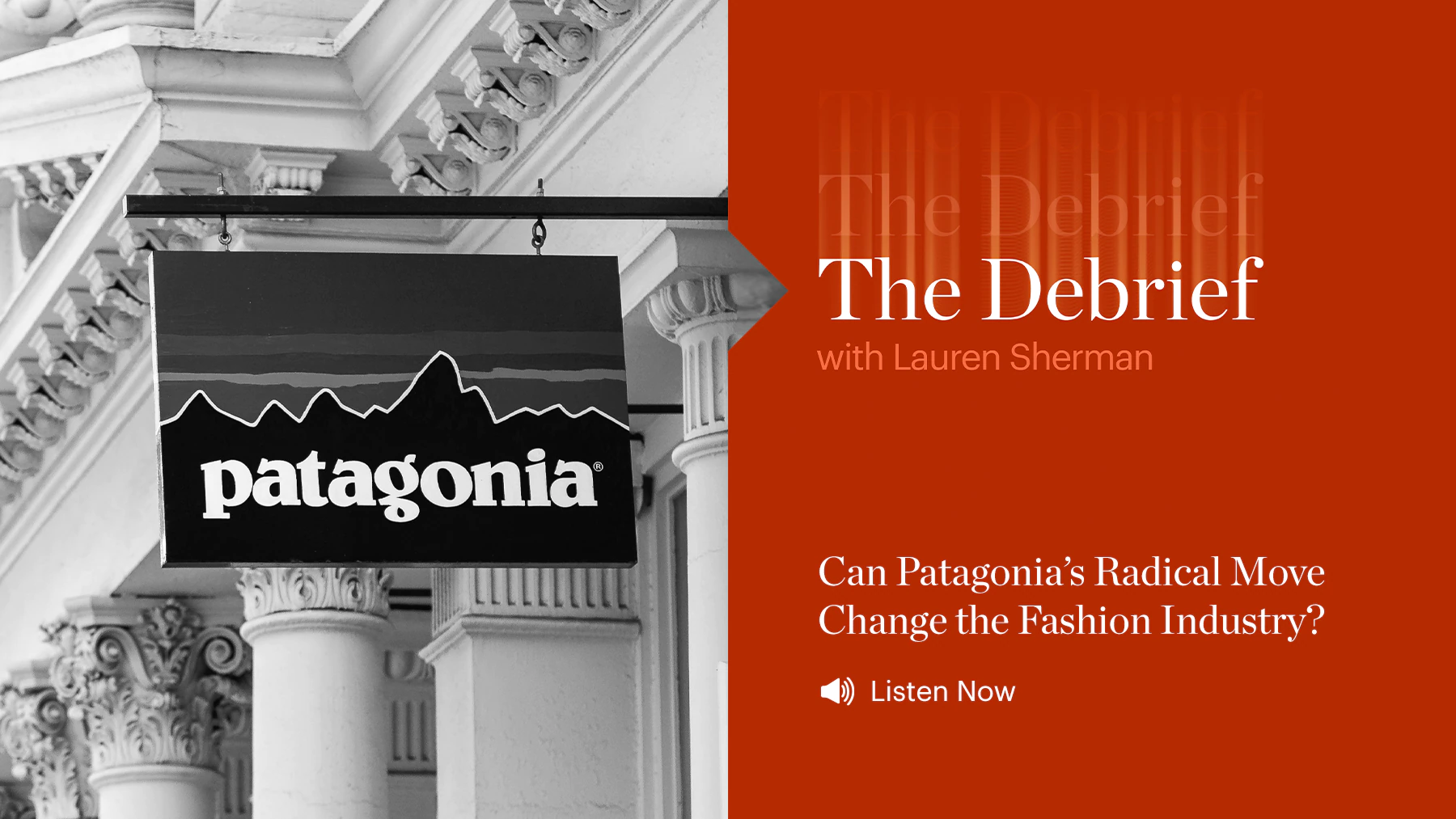
Follow The Debrief wherever you listen to podcasts.
Patagonia has long been the standard bearer for responsible capitalism: the jackets and fleece maker has donated 1 percent of all sales — which top $1 billion a year according to The New York Times — to environmental groups since the ‘80s, and was one of the first companies to qualify for B-Corp sustainability certification. In its latest bid to live out its mission statement, “founder Yvon Chouinard gave most of Patagonia’s shares over to a non-profit which will be tasked with reinvesting its profits (projected at some $100 million a year) in fighting the climate crisis. “Earth is our shareholder now,” Chouinard wrote in an open letter on the company’s site
“This is pretty unprecedented. Individuals don’t do this, and it almost broke the bounds of what people had imagined business should look like, ” said BoF chief sustainability correspondent Sarah Kent.
- Chouinard created a structure in which Patagonia’s profits cycled toward charitable endeavours focused on climate change in perpetuity.
- All shares priorly held by the Chouinard family will be given away to different entities, two percent of shares will be put into a trust which will govern the company and ensure it operates in line with responsible business practices and the other 98 percent will be held by a non-profit that will be responsible for distributing them.
- Through the years, Patagonia has made it a goal to balance turning a profit with encouraging responsible spending. It’s managed to go about communicating that in an authentic way because it’s transparent about the tension between those two goals.
- While the move by Patagonia will be hard to replicate elsewhere (given shares were owned by the family), it has created a template that could be used on a smaller scale.



